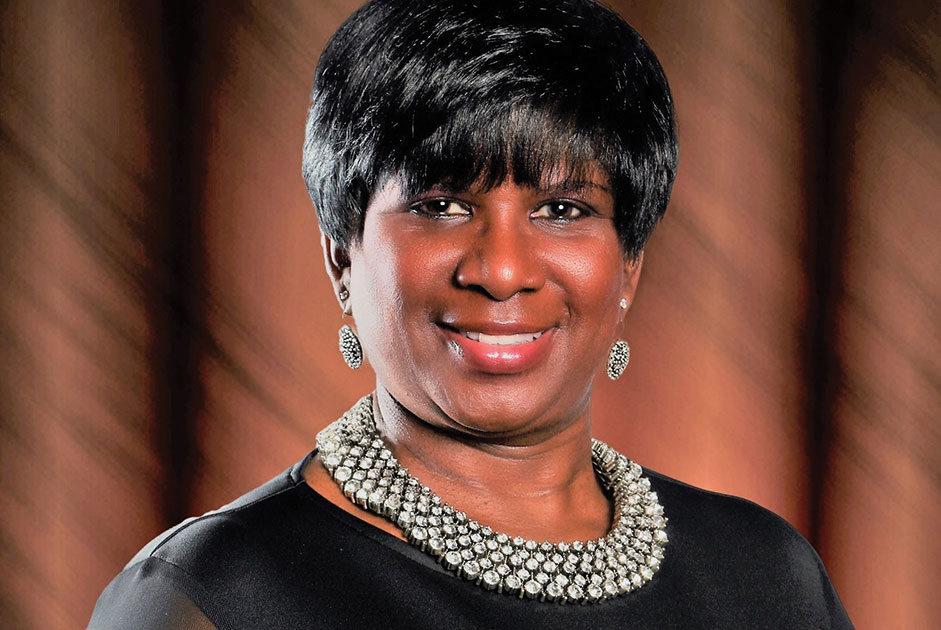*Check out YouTube at the end of post!
Voices Changing Communities: D’Walla Simmons-Burke is Lifting Every Voice
If you ask D’Walla Simmons-Burke to talk about her story and impressive list of accomplishments, she immediately brags on her students, instead. Maestra Simmons-Burke is the Director of Choral and Vocal Studies for the Department of Music at Winston-Salem State University, where she conducts the Singing Rams and four other vocal ensembles. She beams as she describes the Singing Rams’ national invitations and performances – 8 at Carnegie Hall for starters. When invited to make her conducting debut with the New England Symphony (a huge honor), Maestra Simmons-Burke insisted on bringing all 35 Singing Rams with her before saying yes. She brags, not on herself, but on how the WSSU students memorized the entire work of Gabriel Fauré’s Requiem and joined the New England Symphony Chorale at Carnegie Hall for her conducting debut performance. She lifts every student’s voice under her instruction, no matter what their musical experience may be before enrolling at WSSU. “What can I do with them where I get them?” She has done a lot since joining WSSU in 1989!
Growing up in a college town in Georgia, in a loving family surrounded by music, Simmons-Burke started piano and voice lessons at a young age and wanted to be an opera singer. She excelled at both. In high school, she marched in the military-style band, twirled the baton, was on the band drill team, and twirled knives (a very impressive list)! She attended concerts when HBCU bands or choirs would perform in her hometown. And her mom passed on the love of teaching. She majored in Music Education (voice principle) at Hampton University and then received her master’s degree in Music Education from the University of Illinois, where she was top student and the only African American in her class, finishing in one year. She lifted her own voice and discovered her passion for conducting, even though this was, and still is, a male-dominated field.
Simmons-Burke is proud of the legacy she is building at WSSU and in her profession. Simmons-Burke founded the Winston-Salem State University Burke Singers, a female a cappella vocal ensemble, after being victimized by racial and cultural bias. In 1995, Simmons-Burke and the Singing Rams were invited to perform at a large local event attended by international clients of a local business. While she and her choir waited outside of the venue for their entrance, she was approached by the event organizer and instructed, “Come in when I signal you; just don’t sing any of those Negro spirituals.” Trying hard to maintain a poker face, she turned to her students and told them to get back on the bus, without performing. They traveled in silence back to WSSU, D’Walla processing the anger and injustice that she experienced, as only a few students had heard the verbal exchange. Worried that this silent protest would cost Simmons-Burke her job, she instead received praise and support from the WSSU Chancellor and from a female student who was close enough to Simmons-Burke to hear the injustice, urging her to start a new ensemble. She saw a need to add variety, emotion, and a sense of political awareness to the choral program and to the city of Winston-Salem, North Carolina. Simmons-Burke lifts the voices of young female singers, who form the core of the Burke Singers, and who continue to write, create, and perform music that speaks to societal injustice.
Even the COVID-19 pandemic has yet to silence the voices uplifted by Simmons-Burke. Since singing in person is one of the worst things you can do for the spread of the virus, Simmons-Burke and the WSSU choir have joined the Virtual Choir Consortium of Charlotte, where the Singing Rams, along with choirs all over the world, will be creating virtual choral performances. One research project called “Singing Black and White” has combined traditional white church choir members with high school choirs, community choirs, and groups like the Singing Rams and the choir from Winthrop University. The result was a better sound together, rather than separate. The different choral groups taught each other about cultural differences as well as singing styles. Conductors like Simmons-Burke led the virtual mixing of choirs, resulting in a harmony that our society should emulate. “Lift Every Voice and Sing” is something that Simmons-Burke does beautifully. Everyone should join her choir!





















